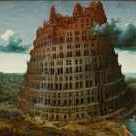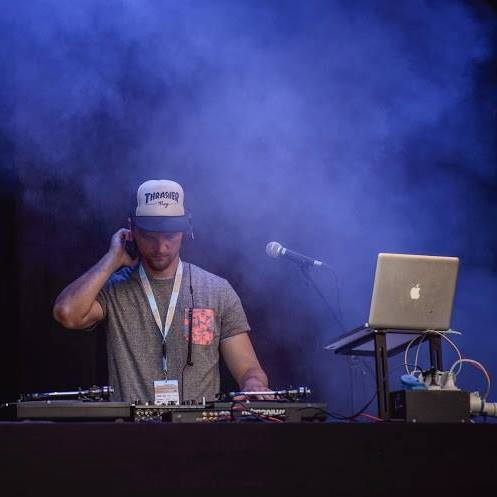-
Posts
2185 -
Joined
-
Last visited
-
Days Won
46
Everything posted by linguaholic
-
Hi Florence! Warm Welcome to Linguaholic.com! We have a lot of Spanish Native Speakers here! I am sure you can find a good language buddy here! Je te souhaite encore une bonne journée! Lingua
-
Thank you Aurelia for all your efforts! Highly appreciate it!
-

Help me to translate this in German.
linguaholic replied to GalenaFan's topic in Translations (Theory & Practice)
[ORIGINAL TEXT] [I live in Dupnitsa, which is small and a very beautiful town, situated in west Bulgaria. It is at the foot of the highest mountain in the Balkan Peninsula – the Rila Mountain, and about 65 km south of the capital Sofia. The town has existed since Antiquity. The German traveler and knight, Arnold von Harff, visited Dupnitsa in 1499 and described it as a "beautiful town". The names Tobinitsa, Doupla and Dubnitsa are mentioned throughout history, the last one used until the Liberation of Bulgaria, when the official name was changed to Dupnitsa. In 1948 the town was renamed Stanke Dimitrov; for a short period in 1949 it was called Marek; the name was changed to Stanke Dimitrov in 1950. After the democratic changes, the old name Dupnitsa was restored. My family has a house in town. I live there with my parents and my sister. I had no opportunity to move to another city. On a hill overlooking the town there is a giant cross, commemorating the Bulgarians who perished in the Balkan wars and World War I. On the same hill there lay the ruins of a medieval fortress. During the World War II, even though there was no deportation of Bulgarian Jews of the former Bulgarian territories, over 4,000 Jews from parts of Greece and Yugoslavia annexed by Bulgaria were arrested on 4 March 1943 and deported to an internment camp in Dupnitsa. After ten days in the Dupnitza camp, on 18–19 March they were transferred by train to Lom on the Danube. Nowadays Dupnitsa is fast-developing town. There is a market, where everyone can find everything. There's also a theater, stadium, mosque, town garden and park. The theater shows a pretty good plays. On the stadium local teams play usually matches between each other. The mosque is actually a gallery. Frequently there are shown beatiful exhibitions. In the town garden and in the park there are many kids playing around. Die Straßenbedingungen und das Sanitärsystem sind ziemlich schlecht.- will stay the same Despite this our town is a small and very beautiful universe.] [MY TRANSLATION] [Ich lebe/wohne in Dupnitsa, einer kleinen und wunderschönen Stadt im Westen von Bulgarien. Es liegt am Fusse des höchsten Berges/Gebirges der Balkanhalbinsel : das Rila-Gebirge. Dupnitsa befindet sich 65 km südwärts der Hauptstadt Sofia. Die Geschichte der Stadt reicht bis in die Antike (bis ins Altertum) zurück. Der deutsche Ritter und Wanderer, Arnold von Hoff, besuchte schon im Jahre 1499 Dupnitsa und bewunderte seine Schönheit. Während seiner langen Geschichte trug die Stadt die Namen 'Tobinitsa', 'Doupla' und 'Dubnitsa'. Letztere Bezeichnung trug die Stadt bis zur Liberation Bulgariens. Zu diesem Zeitpunkt wurde die Stadt dann in Dupnitsa umbenannt. Im Jahre 1948 trug die Stadt für kurze Zeit den Namen 'Stanke Dimitrov'. Im Jahre 1949 zierte der Namen 'Marek' die Stadt. 1950 hiess die Stadt dann wieder Stanke Dimitrov. Nach den demokratischen Anpassungen, die danach stattfanden, wurde wieder der alte Name 'Dupnitsa' verwendet. Meine Familie besitzt ein Haus direkt in der Stadt. Ich lebe dort mit meinen Eltern und mit meiner Schwester. Die Möglichkeit in eine andere Stadt zu ziehen, besass ich nie. Wenn man von einem bestimmten Hügel aus über die Stadt hinweg blickt, dann sieht man ein riesiges Kreuz, welches zum Gedenken der Opfer Bulgariens im Balkankrieg und im ersten Weltkrieg aufgestellt wurde. Auf diesem selben Hügel findet man auch die Ruinen einer mittelalterlichen Festung. Während des zweiten Weltkrieges wurden am 4. März 1943 4000 Juden, welche aus Teilen Griechenlands und des ehemaligen Jugoslawiens stammten, jedoch durch Bulgarien annektiert wurden, verhaftet und nach Dupnitsa in Konzentrationslager verschleppt. Nach etwas mehr als 10 Tagen im Konzentrationslager in Dupnitsa, wurden die Opfer am 18. und 19. März mit dem Zug nach Lom an der Donau gebracht. Das jetzige Dupnitsa entwickelt sich mit rasanter Geschwindigkeit. Es gibt einen Markt, wo jeder alles finden kann, was er für den Alltag so braucht. Weiterhin gibt in der Stadt auch ein Theater, ein Stadion, eine Moschee, ein Stadtgarten und ein Stadtpark. Das Theater bietet interessante Aufführungen an. Im Stadion stehen sich oft lokale Mannschaften gegenüber. Die Moschee ist eigentlich eine Art Gallerie. Oft gibt es dort spannende Ausstellungen. Im Stadtgarten findet man jede Menge spielender Kinder vor. Leider lassen die Strassenbedingungen und das Sanitärsystem noch zu Wünschen übrig. Nichtsdestotrotz ist Dupnitsa unser kleines aber feines Universum.] -

Help me to translate this in German.
linguaholic replied to GalenaFan's topic in Translations (Theory & Practice)
I can help you with the translation once again but not before Sunday Evening. Is that a deal? I have to prepare some exams right now. regards, Lingua -

Help me to translate this in German.
linguaholic replied to GalenaFan's topic in Translations (Theory & Practice)
Well 'Ich wohne' and 'Ich lebe' are not exactly the same things, but of course, usually, if you live somewhere, you also 'wohnen' there :=) Both of them are completely fine to me in most cases. -

Help me to translate this in German.
linguaholic replied to GalenaFan's topic in Translations (Theory & Practice)
Well, first of all you should tell me what your teacher did not like about my previous version, please. :=) -

Help me to translate this in French
linguaholic replied to Chris4Davi's topic in Translations (Theory & Practice)
Yes, Verba. I completely understand! I really appreciate the fact that she translated this passion for one of our members here on linguaholic.com! That's awesome. Please say thanks to her in my name. Thank you. -

Hola! Estoy aprendiendo Español
linguaholic replied to learninglanguages7's topic in New Forum Members
Hi there! Thanks for joining linguaholic.com! Hopefully you will learn a lot here! If you have any questions, don't hesitate to ask me! I will be glad to help. kind regards from Switzerland Lingua -

Help me to translate this in French
linguaholic replied to Chris4Davi's topic in Translations (Theory & Practice)
Thank you for providing this translation! It gets the meaning cross pretty, well, however there are still some mistakes in it. Let me provide some suggestions as well (not complete yet). Moreover it is un logiciel de traduction and tu peux essayer de télécharger. In the sentences 'Je sais que nous voulons à communiquer', you would need to delete the à. Moreover, this sentence does not sound very natural. Instead of 'Nous voulons communiquer' you could say something like 'engager la conversation' or 'faire la conversation'. -

Help me to translate this in French
linguaholic replied to Chris4Davi's topic in Translations (Theory & Practice)
I can help you with that. However, some of those sentences are a little bit weird. Is this the complete text that you would like to get translated into French? Please clarify. Then I can help you with the translation. -
That's an interesting question, Aurelia. I am also wondering where the idiomatic expression 'go bananas' comes from. I really can't think about the etymological roots of this phrase...just does not to make sense at all :=)
-
Hi Nathalie It's great to welcome another language enthusiast. Feel free to geek out here...as long as it is language-related, it is no problem at all :grin:
-

Help me to translate this in German.
linguaholic replied to GalenaFan's topic in Translations (Theory & Practice)
If you ask me, the translation is pretty good! Some parts of your translation just did not sound very german, so I decided to 'tune' them a little bit. But don't worry, your German is pretty good already! If you have any questions about my corrections, please let me know. regards, lingua -

Foreign Language Text Reader (FLTR)
linguaholic replied to nikolic993's topic in Language Study Apps
Thank you for sharing this, Nikolic. I will definitely give this one a try. regards Lingua -

Help me to translate this in German.
linguaholic replied to GalenaFan's topic in Translations (Theory & Practice)
And of course you can't say auto-rickshaws. You could probably just go for Rikscha (This is the official German word for Riksha). -

Help me to translate this in German.
linguaholic replied to GalenaFan's topic in Translations (Theory & Practice)
Here you go: Ich lebe in Dupnitsa. Es ist eine kleine und schöne Stadt im Westen von Bulgarien. Unser Elternhaus ist dort. Ich lebe in diesem Haus mit meinen Eltern und meiner Schwester. Ich wurde in Dupnitsa geboren. Ich hatte nie eine Gelegenheit dazu, um aus der Stadt herauszukommen. Meine Schule und meine Freunde sind alle hier. Es gibt einen Markt, ein Theater, einen großen Spielplatz und eine Eisenbahnstation. Es gibt Busse, auto-rickshaws, Taxis etc. für den Transport. Es gibt ausserdem drei Krankenhäuser. Die Straßenbedingungen und das Sanitärsystem sind ziemlich schlecht. (or you could say / lassen zu Wünschen übrig) Auf dem Markt kann man alle Sorten von Konsumgütern bekommen, inklusive Kleider, Schuhe und Büromaterial. Das Theater bietet ziemlich interessante Aufführungen. Auf dem Spielplatz wird oft Fussball gespielt und lokale Mannschaften treten gegeneinander an. Wir leben glücklich in unserer Heimat – unserem (kleinen) Universum. -

Help me to translate this in German.
linguaholic replied to GalenaFan's topic in Translations (Theory & Practice)
Hi there I will have a look at this text for you later today. Don't worry. :=) regards Lingua -
The poll is now open again. HAPPY VOTING!
-
Dear All I started to create a list with English Regular Verbs. The list contains all three forms in English and translations of the basic verb form into German and Spanish. As I do not speak Spanish, it would be appreciated if some of our native Speakers here at www.linguaholic.com could provide the necessary translations from the English Verbs to Spanish. Here is the link for the Verbs List. Through this link you get direct access to the list and you can make changes without having to register! Any contribution to the list is highly appreciated. Link: https://docs.google.com/spreadsheets/d/1AYEcfVeuFzRB5t9iCOGeMyQUQ9vwAWCJHKXzSkE2ftQ/edit?usp=sharing
-

Verb Conjugation and dictionary entries in Latin
linguaholic replied to linguaholic's topic in Study Latin
That's right. A dictionary entry generally consists of four parts. The dictionary entry for king would look like this: 1. The first part is the Nominative Singular Form, [rex] 2. The second part lists the Genitive Singular Form, [rēgis] 3. The third part of the entry indicates the Gender, [m.] 4. The fourth part contains the translation (for instance the English Translation), [king] -

Verb Conjugation and dictionary entries in Latin
linguaholic replied to linguaholic's topic in Study Latin
second part of the chart, containing more of the verbs (first, second and fourth conjugation verbs) -
Dear All Feel free to have a look at this chart for Latin Verb Conjugation (Common first, second-, and fourth-conjugation verbs)
-
Hi there Welcome to Linguaholic! We have a lot of Spanish Native Speakers here on linguaholic.com! If you have any questions about the Spanish language, just open a thread in the Spanish Subforum :grin: kind regards from Switzerland lingua

